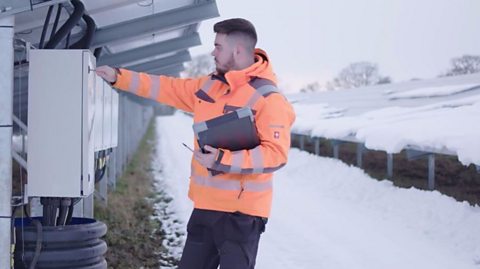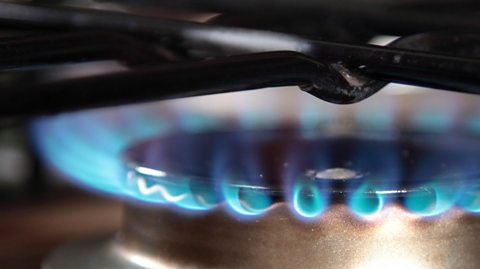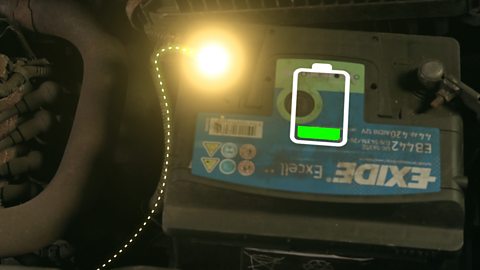Key points
Electricity is generated in power stations from non-renewable resourceA resource that will run out, e.g. oil, natural gas, coal. These sources cannot be replaced by nature in less than a human lifetime. sources, such as gas or coal. It is also generated from renewableEnergy resources that can be easily replenished or are effectively limitless. These resources will not run out by being used. Solar power is an example of a renewable energy resource. sources, such as wind turbines and solar panels.
Appliances like mobile phones use very little electricity whereas heating appliances use much more.
You can use less electricity by switching off lights and not leaving appliances on standby.
Watch the video below to learn what is domestic energy?
Where does electricity come from?
In the UK, much of our electricity is supplied by generators in power stations. A generator is a magnet that is placed at the centre of a wire coil. Rotating the magnet produces an electric current.
In all power stations the generators are turned by turbineRevolving machine with blades that are turned by wind, water or steam. Turbines in a power station turn the generators.. The turbines are turned by high pressure steam, which is produced by heating water with the fuel.
In fossil fuel power stations, water is heated by burning gas, oil or coal. In nuclear power stations, the water is heated by energy transferred from nuclear reactions. Fossil fuels and nuclear fuels are non-renewable.
Renewable energy sources include wind, moving water (hydroelectric), and sunlight. Wind turbines use wind to directly power a turbine. Hydroelectric power stations use moving water to power a turbine. They both rely on movement, rather than heat, to generate power. Solar cells, on the other hand, convert sunlight directly to electricity, requiring neither turbines nor generators.
What is domestic energy?
Domestic energy is energy used in the home. You need energy at home for cooking, heating and to power devices and appliances.
How much electricity do you need at home?
Different appliances need different amounts of electricity. A mobile phone transfers just 0.5 jouleThe unit of measurement for energy (J). A kilojoule (kJ) is 1000 joules. of energy every second. An electric oven might transfer 3000 joules per second.
Electricity meters measure the amount of electrical energy you use at home. The more you use, the more you pay.
How can you use less electricity at home?
There are many simple ways to save electricity around the home. You could switch off lights, or avoid leaving the television on standby. You could also wash your clothes less often, or do less ironing.
The less electricity you use, the cheaper your bills and the smaller the amount of resources needed to generate your electricity. Using less electricity may also mean that fewer greenhouse gasThe gases responsible for global warming - carbon dioxide and methane. like carbon dioxide are added to the atmosphereThe atmosphere is the layer of gases surrounding a planet. .
Test your knowledge
Domestic energy quiz
Find out how much you know in this quick science quiz.
Play the Atomic Labs game! gamePlay the Atomic Labs game!
Try out practical experiments in this KS3 science game.

More on Energy
Find out more by working through a topic
- count1 of 6
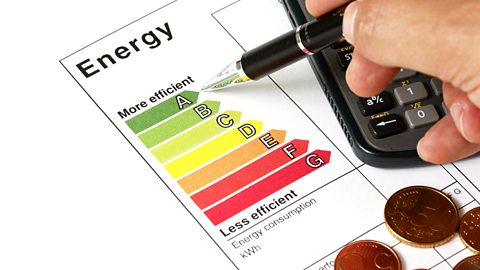
- count2 of 6
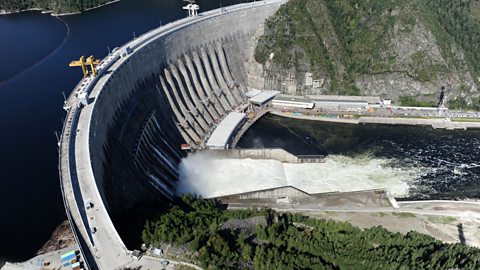
- count3 of 6

- count4 of 6

